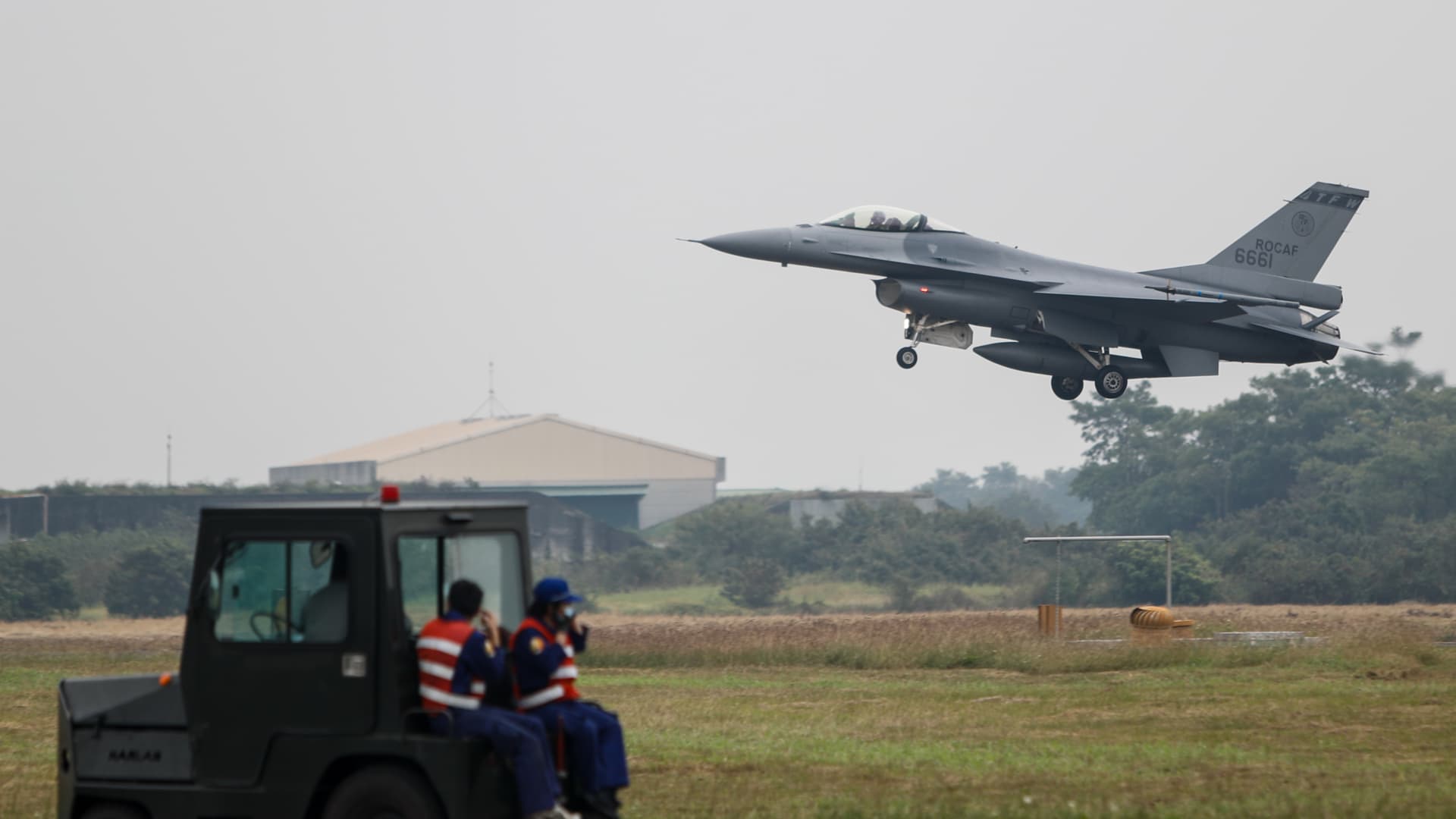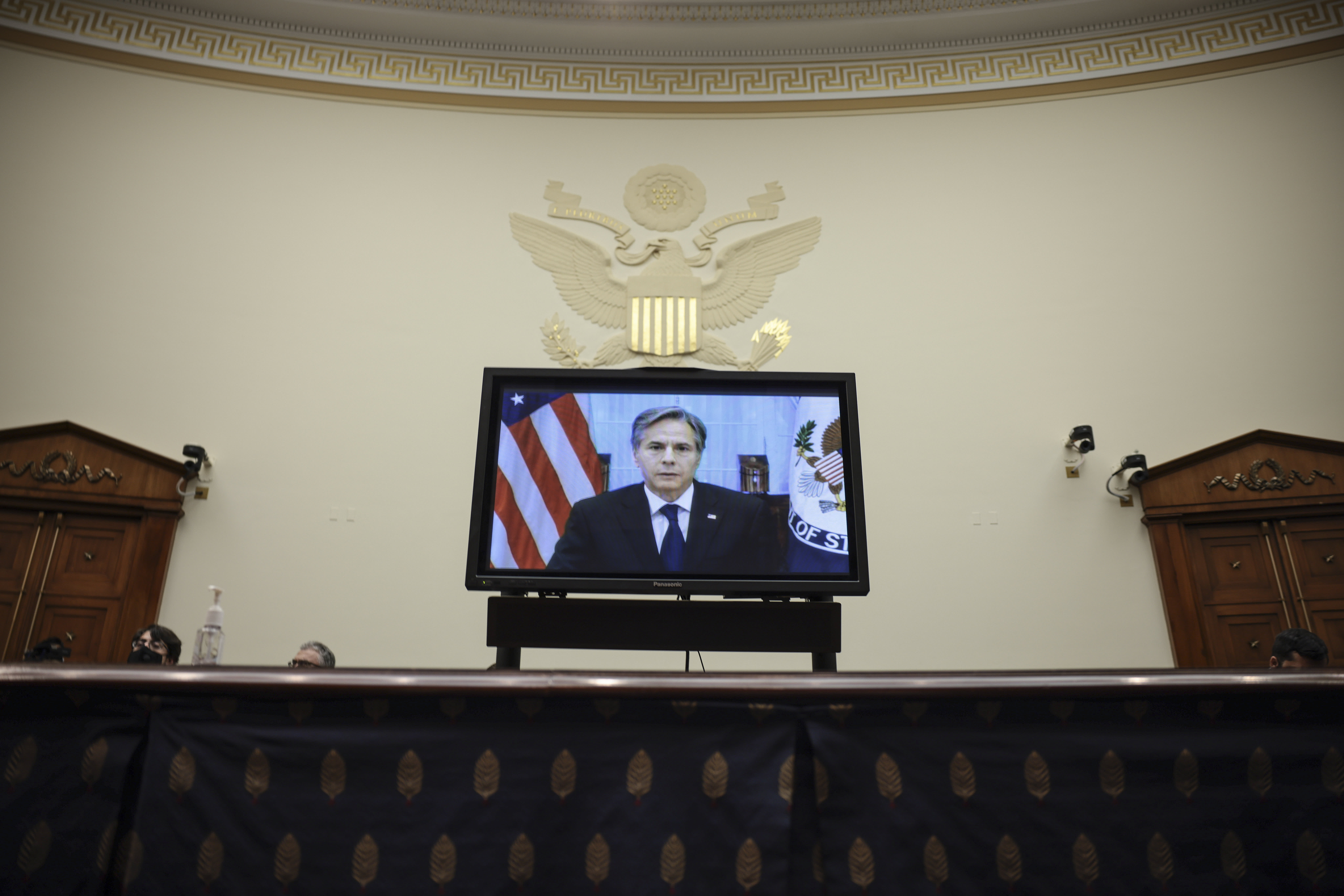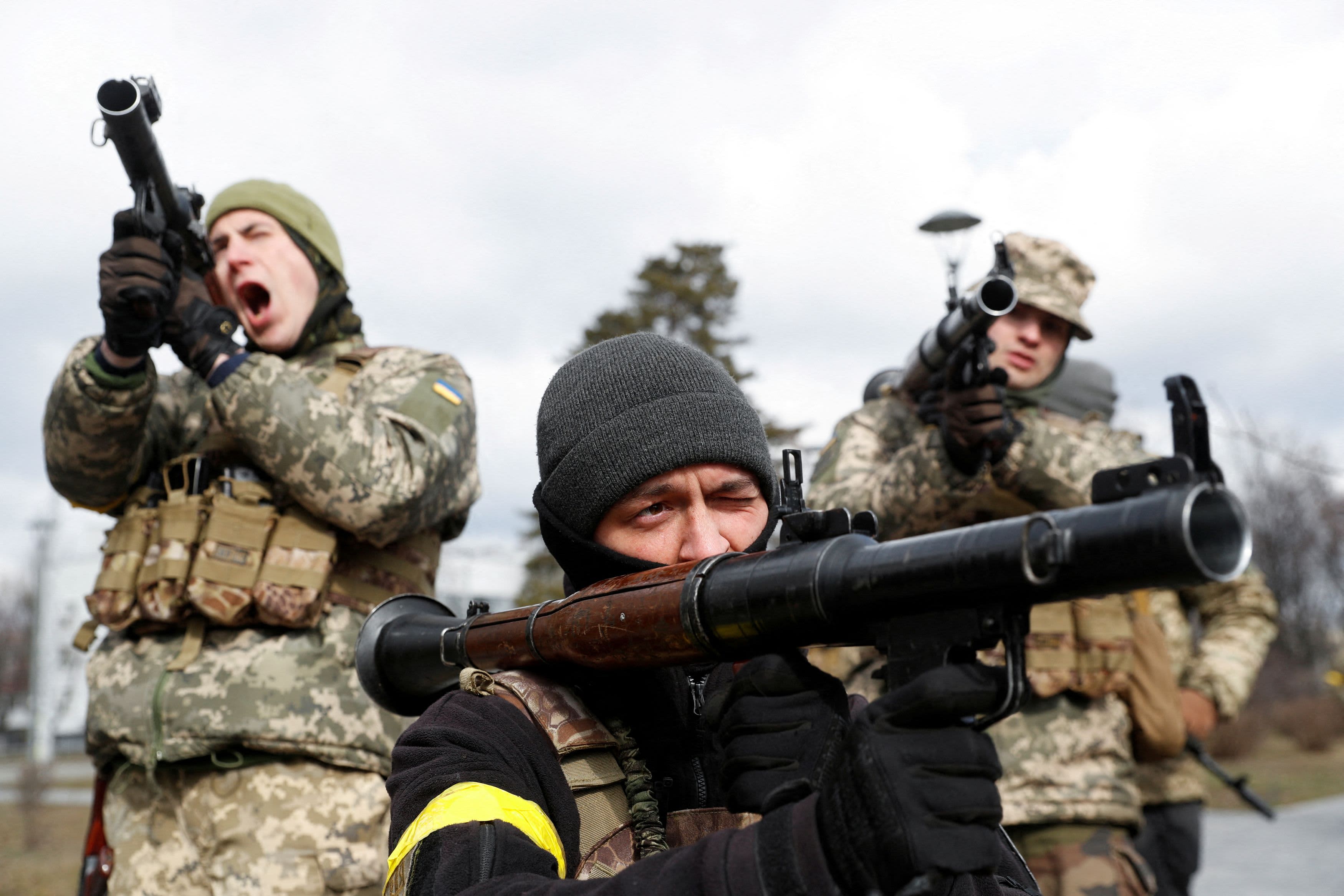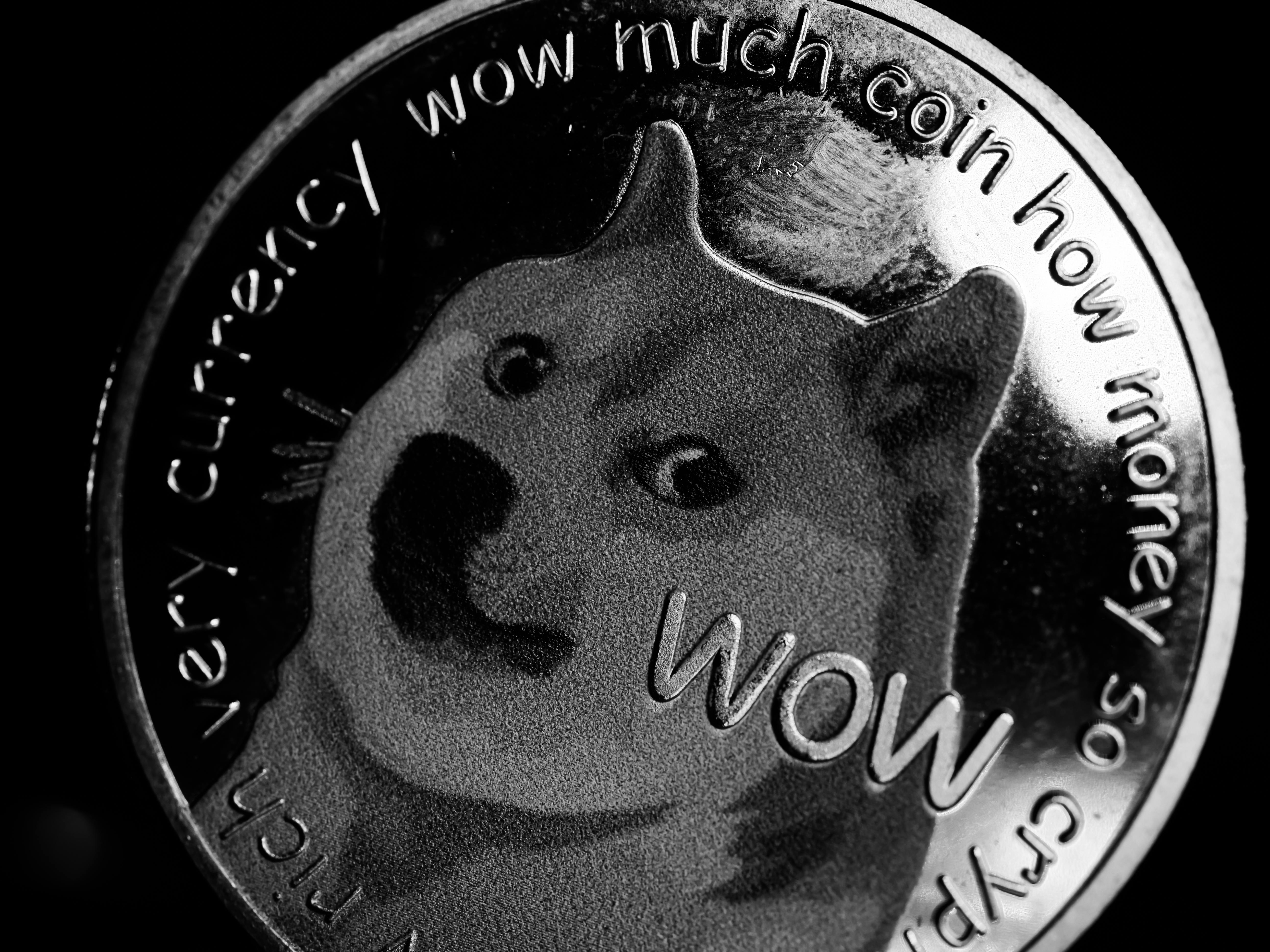'Stop smearing' China: Chinese defense minister accuses U.S. of creating 'conflict and confrontation'
China's defense minister has accused the U.S. of "smearing" Beijing and says Washington is trying to "hijack" countries in the Indo-Pacific region.

An F-16V jet fighter taxies on the runway in January for an emergency takeoff as part of a Taiwanese military drill in Chiayi, Taiwan, as China increased overflights by PLA fighter jets over the self-governed island in 2022.
Nurphoto | Nurphoto | Getty Images
SINGAPORE — China's defense minister accused the U.S. of "smearing" Beijing and said Washington is trying to "hijack" countries in the Indo-Pacific region.
Wei Fenghe, speaking at the Shangri-La Dialogue in Singapore, said the burden of improving the troubled U.S.-China ties lies on Washington.
"We request the U.S. side to stop smearing and containing China. Stop interfering in China's internal affairs. The bilateral relationship cannot improve unless the U.S. side can do that," he told delegates at the dialogue, Asia's top defense conference.
"However, if you want confrontation, we will fight to the end. The two militaries should make positive efforts for a positive relationship," Wei added.
Wei said U.S. President Joe Biden's new Indo-Pacific strategy leads to "conflict and confrontation."
The U.S. announced its Indo-Pacific Economic Framework, or IPEF, in May as part of its strategy for the region. The IPEF involves 13 countries and excludes China.
"To us, the strategy is an attempt to build an exclusive small group in the name of a free and open Indo-Pacific, to hijack countries in our region and target one specific country," Wei said at the concluding day of the three-day dialogue in Singapore.
"It is a strategy to create conflict and confrontation to contain and encircle others," he said. "China seeks peace and stability, and is not an aggressor in the Indo-Pacific," he said, calling on the U.S. to "strengthen solidarity and oppose confrontation and division."
During the summit, which has seen addresses by Japanese Prime Minister Fumio Kishida and U.S. defense secretary Lloyd Austin, China has been pushing back against narratives of Chinese aggression in the Indo-Pacific.
Senior serving and retired Chinese military officials have held special media briefings to counter the speeches by both Kishida and Austin.
Read more about China from CNBC Pro
Speaking on Saturday, Austin had described the Indo-Pacific as a "priority theater of operations" that lay at the "heart of American grand strategy." He called the Indo-Pacific strategy released in February central to the Biden Administration's forthcoming National Security Strategy and to his own department's National Defense Strategy.
Austin sharply criticized Beijing's increasingly "coercive and aggressive" approach to its claims in the Indo-Pacific — where China is involved in territorial disputes with several neighbors including Japan, India, the Philippines, Vietnam and Indonesia.
Warning on Taiwan
On Sunday, Wei also issued a terse warning on Taiwan, which China regards as a breakaway province that is to be reunified with the mainland, by force as a last resort. China will fight any attempts by Taiwan to declare independence to the "last man," he said.
"We will fight at all costs and we will fight to the very end. This is the only choice for China," he said. "Those who pursue Taiwanese independence in an attempt to split China will definitely come to no good end."
"It is China's Taiwan, a province of China. We will realize the reunification of Taiwan," Wei said.
His speech came a day after U.S. Defense Secretary Austin accused China of "provocative, destabilizing" military activity close to the island.
The US is obliged to provide the self-ruled island with the weapons and services to defend itself under its Taiwan Relations Act.
Austin had asserted that it was China which was raising the stakes.
"We see growing coercion from Beijing. We've witnessed a steady increase in provocative and destabilizing military activity near Taiwan. And that includes [People's Liberation Army] aircraft flying near Taiwan in record numbers in recent months — and nearly on a daily basis," he said.
China's Wei also called for talks between NATO and Russia to end the Ukraine war. He said China did not have a pact with Russia.
"It is a partnership, not an alliance. Relations with Russia will continue to grow. We have not provided any military or material support to Russia" for its Ukraine war, Wei said.

 Kass
Kass 































